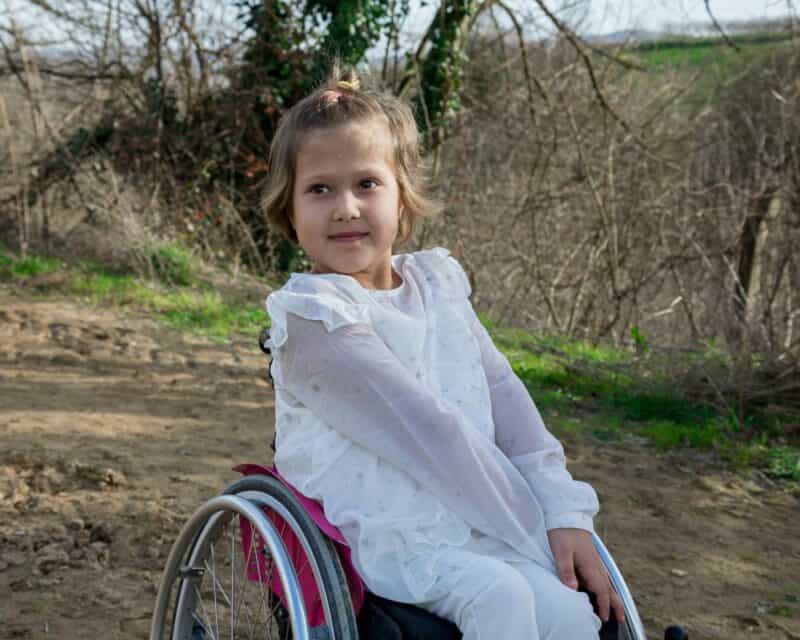Parenting a child with a disability presents unique challenges that require compassion, patience, and adaptability. From the moment a child is diagnosed with a disability, parents embark on a journey filled with uncertainties and complexities. However, amidst these challenges lie opportunities for growth and learning, both for the child and the family as a whole. One of the most crucial aspects of raising a child with a disability is assisting them with everyday activities. These activities, ranging from basic tasks like getting dressed and eating to more complex endeavours like participating in recreational activities or attending school, are essential for the child’s development and overall well-being.
Creating a Supportive Environment

Creating a supportive environment is paramount for helping children with disabilities thrive and achieve their full potential. This involves making modifications and adaptations to the home environment to ensure it is accessible and conducive to the child’s needs. For example, parents may need to install handrails or ramps to facilitate mobility for children with physical disabilities or implement sensory-friendly design elements for those with sensory sensitivities. Additionally, creating a nurturing and accepting atmosphere within the family fosters a sense of belonging and security for the child. By proactively addressing environmental barriers and promoting inclusivity, parents can create a safe and empowering space where their children can flourish.
Breaking Down Tasks
Many everyday activities can feel overwhelming for children with disabilities, particularly those that involve multiple steps or complex sequences of actions. To mitigate these challenges, parents can employ strategies to break down tasks into smaller, more manageable steps. This may entail providing clear and concise instructions, using visual aids or schedules to reinforce understanding, and offering praise and encouragement as the child progresses. Breaking down tasks not only reduces the child’s anxiety and frustration but also enhances their confidence and sense of accomplishment. By scaffolding their learning and providing support as needed, parents can empower their children to tackle tasks independently and develop valuable life skills.
Encouraging Independence

While providing support and assistance is essential, it is equally important to foster independence in children with disabilities. Encouraging independence involves striking a delicate balance between offering guidance and allowing the child to take the initiative and make choices autonomously. Parents can empower their children by providing opportunities for decision-making, encouraging self-expression, and promoting self-care skills. This may include allowing the child to choose their clothing, prepare their meals, or engage in age-appropriate chores around the house. By fostering independence, parents instil a sense of agency and self-confidence in their children, paving the way for greater autonomy and self-reliance in the future.
Using Assistive Devices
Assistive devices play a crucial role in enhancing the independence and accessibility of children with disabilities in their everyday lives. These devices encompass a wide range of tools and technologies designed to mitigate functional limitations and facilitate participation in daily activities. From mobility aids such as useful prosthetics for kids that will help all children function more easily to communication devices like speech-generating devices or augmentative and alternative communication (AAC) systems, assistive technology empowers children to overcome barriers and access the support they need. Identifying the appropriate assistive devices requires collaboration with healthcare professionals and specialists who can assess the child’s unique needs and recommend suitable solutions. By integrating assistive technology into the child’s daily routines, parents can empower them to navigate their environment more independently and engage more fully in social, educational, and recreational activities.
Fostering Social Connections

Social connections are vital for the well-being and development of children with disabilities, providing them with opportunities for friendship, support, and inclusion. Parents can play a crucial role in facilitating social connections by encouraging participation in community activities, organizing playdates with peers, and advocating for inclusive environments in schools and recreational settings. Building meaningful relationships with peers fosters a sense of belonging and acceptance while also promoting social skills and emotional development. Parents can also serve as advocates for their children, educating others about their abilities and needs and promoting awareness and acceptance of disabilities within the community. By fostering social connections, parents help their children build a strong support network and develop the social skills necessary for success in school, work, and everyday life.
Practicing Patience and Persistence

Parenting a child with a disability requires a significant amount of patience, resilience, and persistence. Progress may be slow and incremental, and setbacks are inevitable along the way. Parents need to maintain a positive outlook and celebrate their children’s achievements, no matter how small they may seem. This involves reframing challenges as opportunities for growth and learning and acknowledging the child’s efforts and progress, however modest. Additionally, parents must be prepared to adapt and adjust their strategies as the child’s needs evolve. By modelling patience and persistence, parents demonstrate resilience and determination, qualities that are essential for navigating the complexities of raising a child with a disability.
Assisting a child with a disability in everyday activities requires dedication, creativity, and unwavering support. By doing everything mentioned here, parents can empower their children to overcome barriers and achieve their full potential. Ultimately, by practising patience and persistence, parents can create a nurturing and empowering environment where their child can flourish and lead a fulfilling life enriched by love, acceptance, and endless possibilities.
